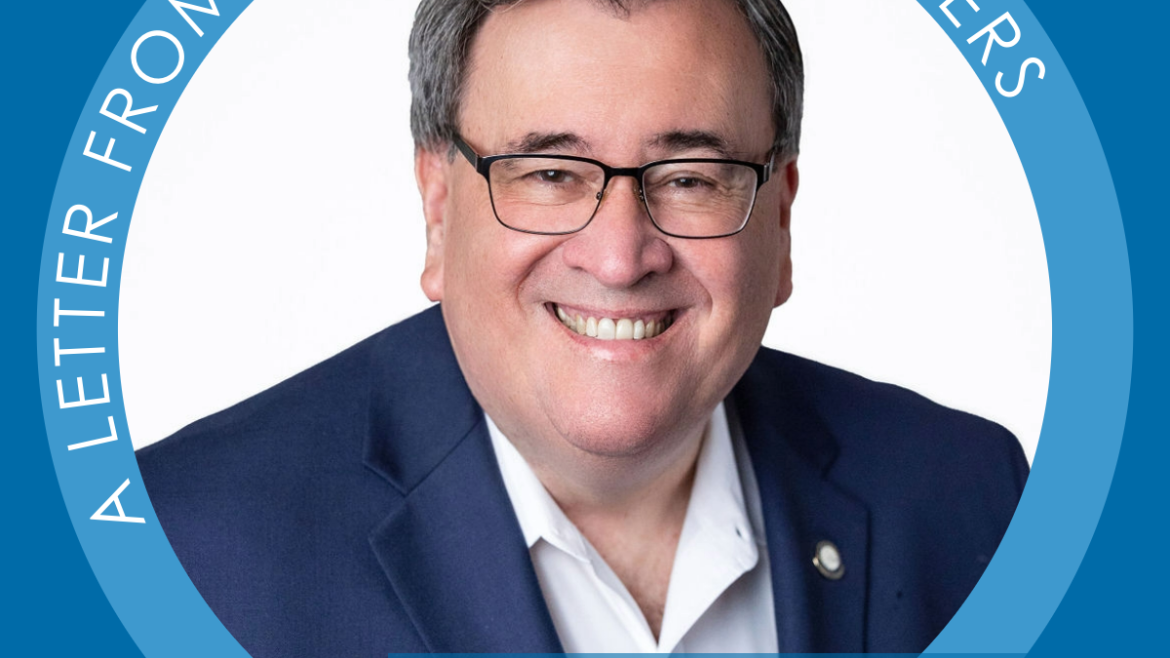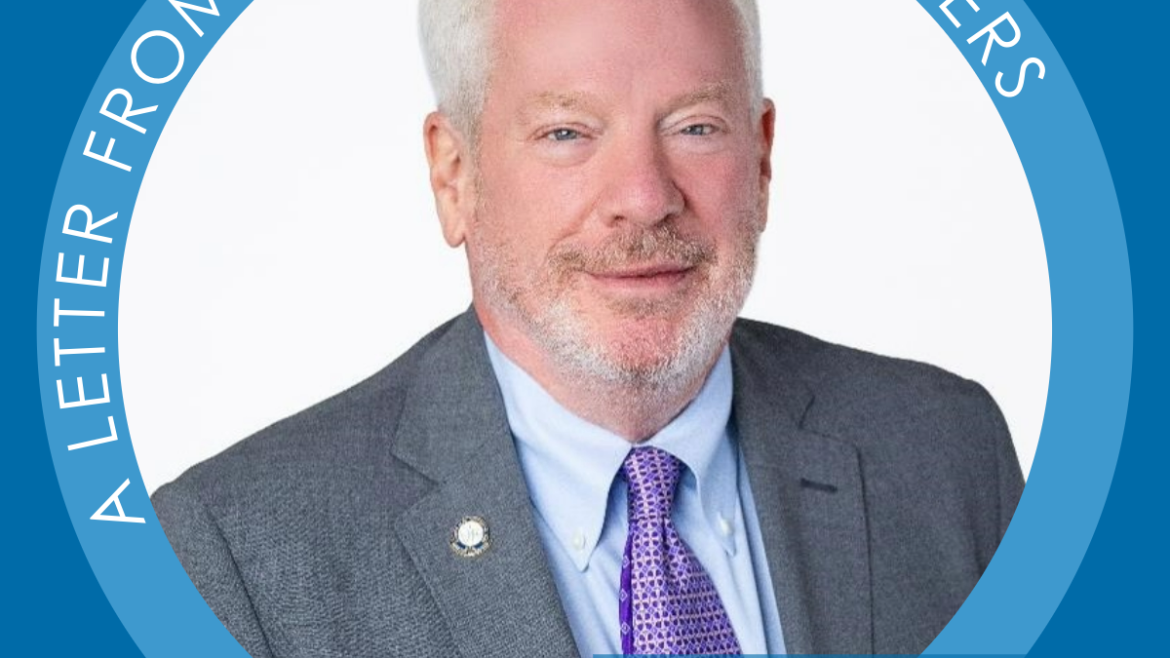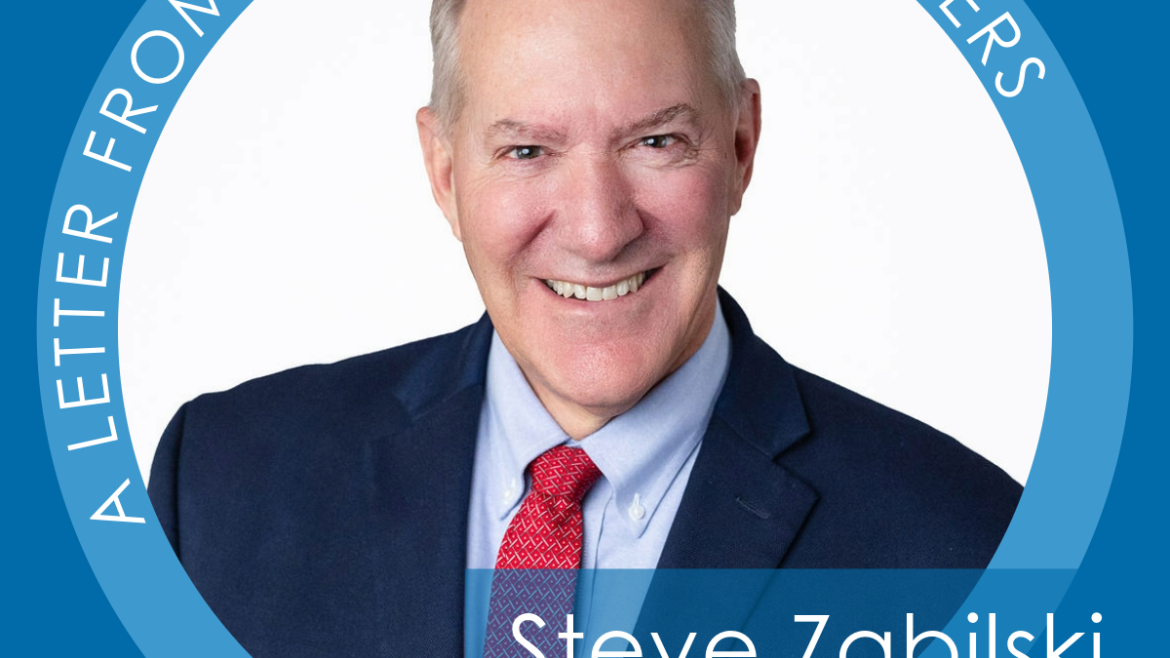There are several topics which immediately start arguments among Vincentians when written about in this space. I wish I could tell you some of them but, you know, it would start the process! However, I will broach one topic because there is an immediate need for some guidance: our logo.
Specifically, I have received recent questions about changing the national Society logo by replacing “USA” in the outer ring with a local identifier, usually a city name. So, let’s dive into some of the rules around this that protect the Society and help us to know who’s who.
First, please recognize that the logo (or “mark” in legal terms) is intellectual property owned by the National Council as a trademark. We have spent literally several hundred thousand dollars to protect its value from outside groups that want to use our name or logo image for their businesses or products. Usually this is a parish, a former Conference that is now a parish group serving the poor, or another Catholic organization that wants to use St. Vincent’s name. We own the rights to use both St. Vincent’s and Frédéric Ozanam’s name for specific business categories such as shelters, food pantries, thrift stores, and generally services for the poor. Another group can use these names in unprotected properties such as hospitals, schools, or even used car lots if they so desire.
If we allow for our logo, the circle with the SVdP letters and an outer ring with “USA” in it, to be changed even by our own members, then legally it becomes more open to changes by outside groups. Considering the economic value our logo has to identify the Society nationally and locally for our goods and services, we need to protect it any way we must to preserve our rights.
If a Council or Conference wishes to make any changes to the national logo, they must have written permission from the National CEO. This helps us to maintain the relevant legal records and places some accountability to preserve the mark as noted above. This is a fairly simple process of exchanging emails with me, including a sample of the desired changes.
What can be authorized? First, I won’t approve any new logo that isn’t a version of our current standard national logo. While we indeed have some of these already in certain cities/dioceses, I truly wish we didn’t in order to maintain a common look and identity for the Society across the country. We could argue the effects, but my position is that alternative logos weaken our brand. Let’s be One Society.
Second, I normally don’t approve a change to our logo for a Conference or a special work. We reserve the city identifiers in the outer ring to Councils, usually with a city/diocese name replacing the USA in the lower part of the outer ring. Separate Conference logos within a Council confuse the public, who may think they are separate legal entities, and often don’t adequately identify the service area anyway. Conferences, stores, and other businesses/service can use a separate name to help identify themselves in text alongside the logo, but not through changes in the approved national logo itself. The exception to this policy may occur when a Conference is separately incorporated, which is uncommon but useful for some liability and other business reasons. The general rule I follow is that altered logos must flow from an incorporated entity, which is usually the Council.
There are also practical reasons for limiting changes. We presently have the event where several parishes, and then Conferences, are merged. There are rules for renaming the new Conference that I won’t go into here, but in some cases the new entity combines the names of the merging Conferences. These longer names won’t fit in the national logo’s available space!
Our Vincentians are certainly creative, so I am also asked for permission to create an event-based logo, such as for a Friends for the Poor Walk. This involves another basic rule for trademark protection, involving legal definitions of an alteration. Basically, no new element is allowed to touch the current logo image such as an added ring, placing the logo on the front of another image like a house, or adding a new element like a hat, angel wings, or whatever. The logo can be placed within such an image, but it can’t touch anywhere, as this is the same legally as an entirely new logo. Before you ask, I don’t approve an outer ring that floats around the current circle, as this is still considered one image.
You may wonder why the CEO needs to be bothered with these details among many other priorities. Ask yourself how you feel when someone calls you by a different name, even if it’s Bobby instead of Robert, or Big Jim instead of simply Jim. Imagine how it would then feel if someone else stole your name and then your appearance! Our Society’s name is important to the understanding of our identity, and in the case of any nonprofit’s logo, our ability to attract volunteers and funds. It all starts with a common identity, including the logo. What’s in a name? Only everything.
Yours in Christ,
Dave Barringer
National CEO




